Revolution in AI, ethical hackers, import substitution: how IT industry finishes the year
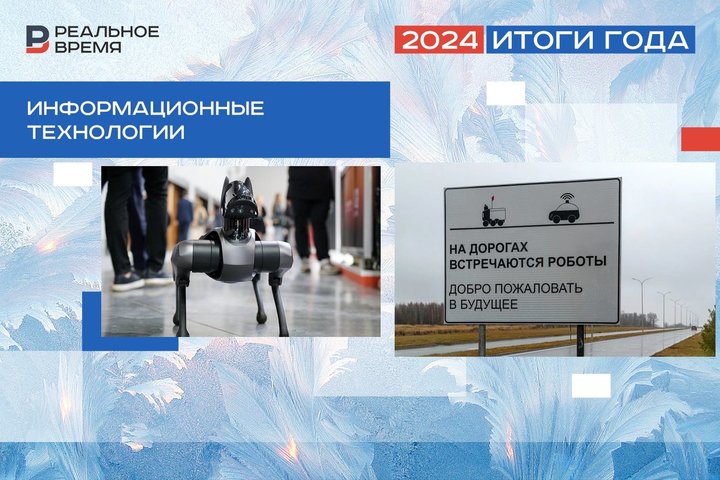
Import substitution remains the main driver of the development of the Russian IT market. The Western vendors who left two years ago have freed up the market for Russian companies and new products. Serious challenges for the industry in 2024 were the acute shortage of qualified personnel, which prevents the market from growing even faster, and the need to combat new cyber threats. About trends and challenges for the IT industry in 2024 and prospects for 2025 — in the review of Realnoe Vremya's analytical service.
225 billion rubles of revenue and a focus on Russian-made operating systems
According to forecasts of the Ministry of Digital Development of Tatarstan, in 2024 the revenue of republican IT companies will reach 225 billion rubles. This is by 19% more than in 2023. Last year, IT companies earned 189 billion rubles (+20.3% compared to last year), and 157 billion rubles in 2022.
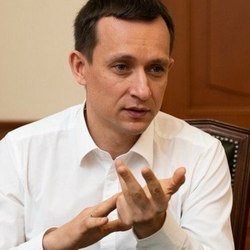
Today, more than three thousand companies operate in the industry. The industry's contribution to GRP is estimated at 3%.
According to the estimates of the Ministry of Digital Development, the past year 2024 was rich in significant events and projects in the digital sphere:
- The transition of government bodies to the Astra Linux operating system has been completed, with the system installed on 140,000 workstations. This system can be freely modified. Linux's open source code is little affected by viruses, Trojans, worms, spyware, and other malware.
- Introduction of new paid categories in the People's Inspector application. The platform was created to reduce the risk of accidents on the roads of the republic. Starting this year, enterprising residents who witnessed violations on the roads can send a video to the People's Inspector and receive a payment for it.
- Creation of a digital AI platform for Gosprompt civil servants. The service will allow officials to use large language models at a professional level without having industrial engineering skills. With the help of the platform, civil servants will have the opportunity to create analytical reports, draw up a content plan for government publications, respond to citizens' requests, create technical specifications and bring regulatory legal acts in line with the norms of legislation.
- The creation of an automated doctor's workplace is a software module of the MedAngel Medical Centre for automating the daily routine operations of a doctor. In this module, doctors customise the workplace to their needs and speed up the appointment process through templates and quick lists.
- The emergence of an acceleration programme to support startups for the defence industry. The programme focuses on unmanned vehicles, artificial intelligence, communication systems, microelectronics, and VR/AR. More than 20 startups have already applied for participation in it.
Challenges and trends of IT industry in 2024
Import substitution remains the main trend in the Russian IT market. After the departure of Western vendors, who left every second Russian company without technical support, technology localisation has become a key task for the country.
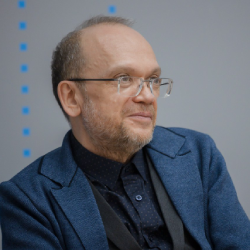
Cybersecurity has become the second biggest challenge for the industry.
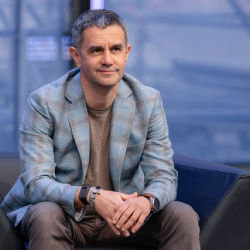
Unlike intruders, ethical guys use hacking tools to check the security of the IT infrastructure and make recommendations for its improvement. They register on special bug bounty platforms to participate in programmes from large companies wishing to test and improve their level of cyber resilience, he explained.
Innostage actively involved independent information security researchers in its own programme with a reward of up to 10 million rubles. Over 950 ethical hackers responded to the call, making hundreds of thousands of attempts to breach the company's cyber defenses.
The hacking of a number of Russian developers and IT integrators, with penetration into the infrastructure of their customers and partners, has become significant, if not shocking for the industry. “These episodes have shown that no one is immune from hackers. But it is important to invest wisely in cybersecurity in order to reduce risks to a minimum, and to be, if not the fastest antelope, then at least the one that is slightly faster than those running nearby," Guzairov said.

Another challenge for the industry is the huge shortage of personnel, which is noted by all experts interviewed by Realnoe Vremya.
In the first six months of 2024, the IT industry grew by 63% year-on-year. More and more IT specialists are needed, said Maksut Shadaev, the head of the Russian Ministry of Digital Development, at a meeting of the president and the government. Over the past four years, the number of employees of IT companies has increased by 50% and exceeded 850,000 people. In the first eight months of this year, another 100,000 people joined the IT industry. The average salary reached 185,000 rubles.
500 universities provide training for IT specialists. In 2024, 125,000 people enrolled in universities for state-funded places to study IT specialties, and about 70,000 more enrolled in paid education. The Unified State Exam in computer science has become the number one subject of choice among natural science disciplines: 122,000 school graduates took the Unified State Exam in computer science this year.
To improve the quality of specialist training, the Ministry of Digital Development proposes to oblige IT companies that benefit from tax benefits to provide “a certain amount of teaching at universities and a certain amount of internships for students”.

Against the background of intense competition for qualified personnel, companies have to raise salaries and develop new employee loyalty programmes.
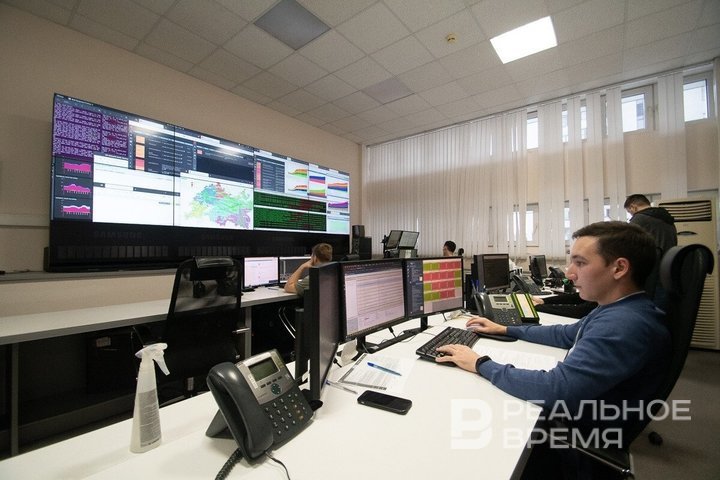
“For us, the key asset always remains personnel who require prolonged investments both in terms of financial motivation, corporate training, and in terms of improving working conditions and implementing applications to increase productivity," commented Airat Nurutdinov. “At Tattelecom, wage growth has exceeded 19% this year, and wage revisions are continuing at a moderate pace. It is noteworthy that in 2024, the number of employees began to grow, which indicates the consistent strengthening of the reputation of a worthy employer.”
The problem of the shortage of qualified personnel did not arise yesterday, but innovative approaches are needed so that it does not worsen and become chronic, says Innostage CEO Aidar Guzairov.
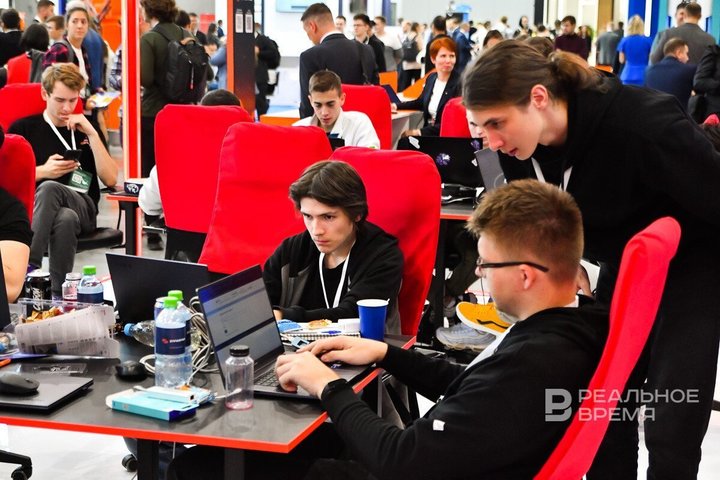
“There are many promising initiatives for the training and development of IT personnel, and encouraging results are already emerging. But we need more ideas and implementers," he suggests. “So, one of our goals was to involve schoolchildren in IT through olympiads. We thought about how to keep students interested in their studies and future profession. In 2022, the Student SOC and the Innostage Student Cyber Battle projects appeared. Now let's move on to the next stage: how to motivate Tatarstan high school students to enter IT. For us personally, this is one of the challenges for 2025.”
Legislative initiatives also have a serious impact on the industry, for example, increased control in the field of personal data.
“In 2024, a number of new laws on personal data protection came into force. In particular, at the end of the year, the President of the Russian Federation signed a decree on a multiple increase in fines for leaks for companies that allowed them, as well as on criminal liability for intruders who steal and sell sensitive information. Such regulatory incentives required the business to make significant changes in working with customer data, including the introduction of new security and encryption systems," notes Aidar Guzairov.
“This is due to objective external reasons — increased data leaks," explains Nurutdinov. “As a result, the new working conditions will require enterprises to make serious software upgrades and pay closer attention to the legality of working with personal data at all levels.”
The IT market was also affected by the sharp increase in the key interest rate.

“In difficult times, some enterprises are cutting back on IT. Often, at certain moments of business turbulence, IT costs can take a back seat. Over time, this affects the postponement of project deadlines, and then the rejection of their implementation. These are always big risks for IT companies," adds the interlocutor of Realnoe Vremya.